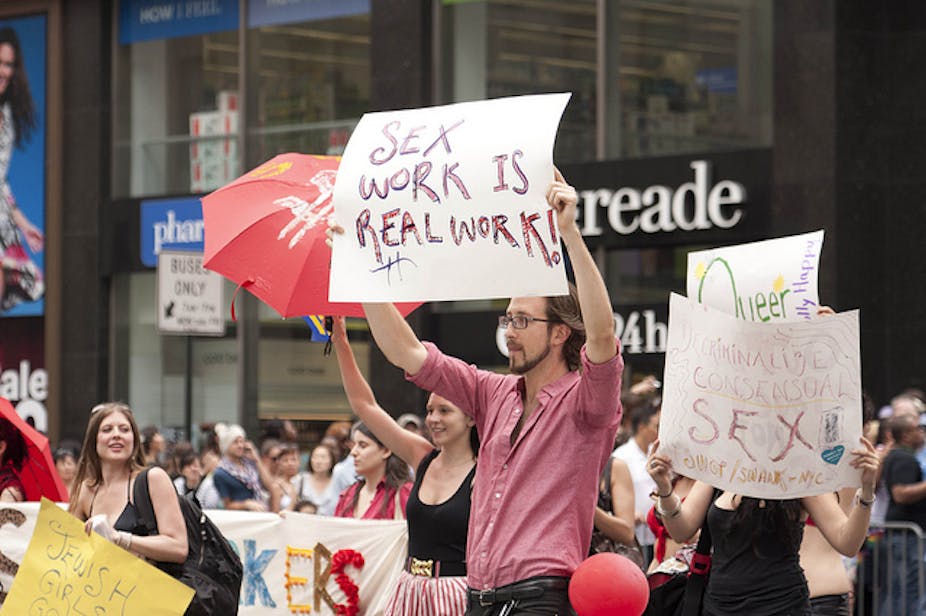When one reads an opinion piece littered with references to “liberal elites”, it is usually a safe bet that one is reading an inherently conservative point of view dressed up to look progressive. So it is with Caroline Norma’s attack on Catharine Lumby in today’s Age.
Where Lumby sees sex work as an appropriate appellation for the exchange of sexual services for money, Norma sees “prostituted women”, universally exploited and abused, and denied their worth as “full citizens”. This reeks of the sort of 1970s feminism in which women were free to do and be as they pleased – provided their sisters approved.
Norma correctly identifies a range of vulnerabilities and adverse outcomes associated with sex work for some women – but these are not outcomes for all women. Indeed, these outcomes are most commonly associated with illegal or informal sex work. To say this is not to minimise in any way the substantial and real harms that do befall some women in the industry.
Yet, whenever there is an attempt to legalise, decriminalise or better regulate sex work, we find an unseemly alliance of radical feminists and conservative Christian churches acting hand-in-hand to circumvent any changes that would empower sex workers, give them greater control over their working lives and improve the safety of their industry. For these people, the idea that a woman could freely choose sex work can only be understood as false consciousness.
Norma goes on to argue that to support sex workers is not to “reveal a loyalty to pimps”.
In fact, one of the keystones of sex work reform has been take control of the industry from the “pimps” Norma decries in her article, and put it into the hands of the workers themselves.
Not only does this remove one of the potentially more coercive and abusive aspects of the industry but it can act to empower workers to improve their working conditions, their income and their safety. It also brings sex work under the umbrella of the occupational health and safety frameworks that all other employees have the right to enjoy.
Tellingly, for Norma there is no such thing as a male sex worker – an odd omission given that research indicates that approximately twice as many Australian men than women have ever been paid for sex. Of those, two-thirds had been paid for sex by another man and the remaining third were paid for sex by a woman.
But the very notion of men being paid for sex, most particularly by women, has no place in the analyses of sex work by Norma and her colleagues – simply because they cannot be reduced to the evils of patriarchy.
Norma’s move to reduce sex workers, both women and men, to prostituted creatures both denies sex workers agency and casts them into eternal victimhood.
Perhaps it is time for Norma to revisit some of the failings of second-wave feminism and to understand the views of those cast out by the sisterhood, especially those whose chosen modes of employment and identity challenge the shibboleths of the sisterhood itself.

